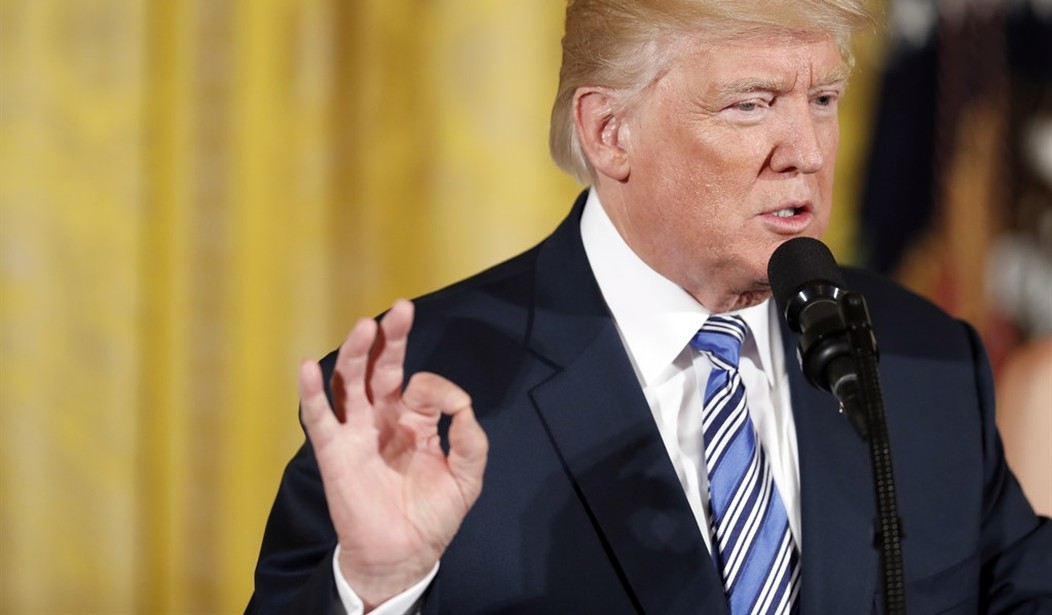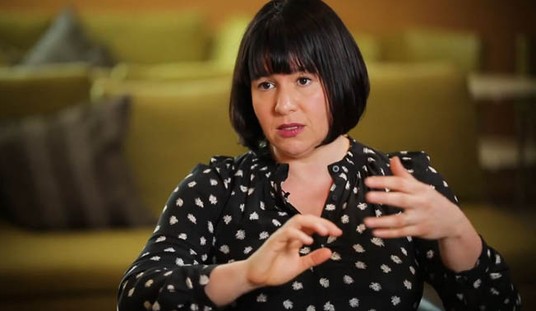Call this the 64 District Question. Almost ever since the confetti fell (and didn’t) in the wee hours of November 9th, the media has continued to wonder when Donald Trump’s voters will turn on him. The Hill’s Niall Stanage takes a look at recent polling, sees erosion Trump’s approval rating, and argues that the base may finally be walking away:
On Monday evening, a new CNN poll put his job approval rating at 38 percent. Just as worryingly from the White House’s perspective, the same survey showed his “strong approval” number among Republicans sliding to 59 percent, from 73 percent in February.
In a Quinnipiac University poll released last week, Trump registered an overall job approval rating of just 33 percent.
The president was even underwater among white people without a college education — the heart of his election-winning coalition last November — registering 43 percent approval and 50 percent disapproval with that group.
And the Quinnipiac poll, like the CNN survey, showed a decline in the share of Republicans approving of his performance. Among Republicans, his performance won the approval of 76 percent now in contrast to 84 percent in late June.
Actually, the numbers appear to be more steady than falling when looking at each series on its own. The RealClearPolitics aggregation on Trump approval ratings shows that the CNN approval rating among registered voters was 40%, not 38%. That’s within the margin of error of their April rating of 44%, and just about within the MoE of March’s 45%. There has been more movement within Quinnipiac, where June’s approval rating was 40%, but that series has also been more volatile. That series had ratings of 34%, 37%, and 36% in May, all within the MoE of the latest rating, and in April had 40% and 35%.
With that said, though, it’s also fair to look at RCP’s chart of overall aggregation on Trump’s approval ratings:

That’s not a good trend, obviously. However, it does look a little like the trendlines between the conventions in July and Labor Day last year, and to some extent until mid-October after the Access Hollywood tape dropped. Some of this was to be expected, as the realities of governing eclipsed the fantasies, and Republicans on Capitol Hill haven’t helped by stepping all over themselves on ObamaCare repeal.
However, the trend line doesn’t gibe up with the overall economic optimism found over the past few months, a disparity that CBS News highlights in the results of its latest survey:
President Donald Trump’s approval rating is unchanged from June and remains at 36 percent, while favorable views of the U.S. economy continue to soar to heights not seen in more than fifteen years. The president does get better marks on his handling of the economy than for other issues, but his overall approval remains where it is partly because Americans say they’re evaluating him more on culture and values than on how they’re faring financially, and partly because his ratings for other domestic issues are negative. …
Overall, positive assessments of the economy have climbed again, now reaching 69 percent, up five points from June, and comparable today to how Americans felt in 2001 and 2002.
Looking at their own pocketbooks, one-third of Americans call themselves very confident in their own economic and financial situation, an increase from this time last year. Still, only those who say they are very confident approve of the president overall – those merely somewhat confident and those uneasy do not approve, suggesting that his overall ratings could be more tied to how Americans feel about their own prospects than to the economy overall.
Granted, voters evaluate presidents on issues other than the economy, but … who exactly voted for Trump on the basis of culture and values? Trump’s base turned out enthusiastically on the basis of economic angst, not “values.” They saw Trump as someone who understood economics and the plight of Middle America, and immigration and trade policies were seen through that lens as well. If economic optimism has risen to such a degree, then that seems more like an indicator of true strength for Trump more than approval ratings — which have always been poor for him anyway.
This makes me wonder just who these poll respondents are, and where they live. Are polling outfits reaching effectively into the areas in which Trump gained loyal supporters? Or are they contacting people in narrower, high-density areas in these general regions that may not have been all that enthused about Trump in the first place? The polls largely missed the Trump phenomenon in the general election (although they mostly got it right in the primaries), and until we see better predictive results, I’d be inclined to see this disparity as a symptom of another miss.








Join the conversation as a VIP Member